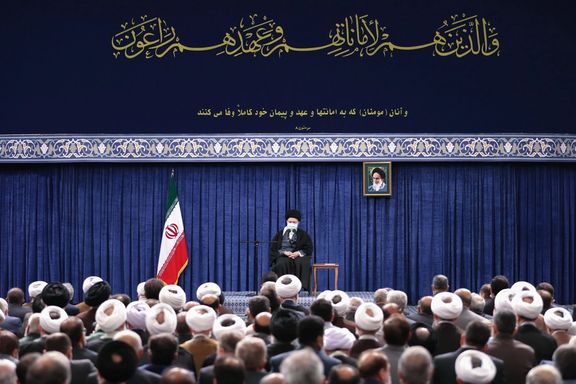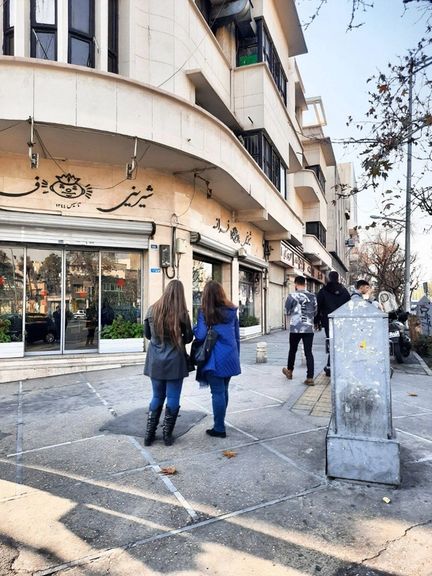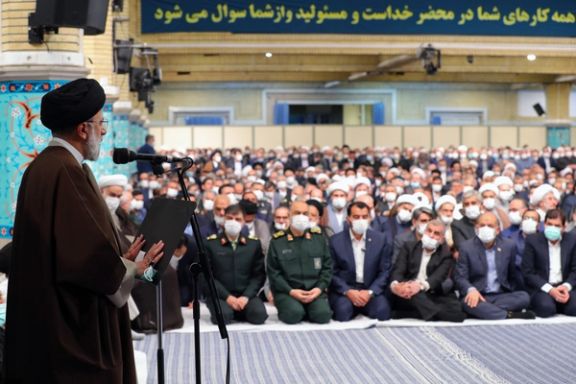Khamenei Backs Measures Against Hijabless Women As School Poisonings Reoccur

Iran’s ruler Ali Khamenei has voiced his support against women who unveil in public, as gas attacks against schoolgirls resumed following Nowruz holidays.

Iran’s ruler Ali Khamenei has voiced his support against women who unveil in public, as gas attacks against schoolgirls resumed following Nowruz holidays.
Throwing his weight behind the hardliners who have been pushing for new measures to enforce the mandatory Islamic dress code, Khamenei said that “hijab is a restriction based on Sharia (Islamic law) and the constitution.”
The Supreme Leader also claimed that “removing hijab is religiously and politically haram,” using the Arabic term which means ‘forbidden.’ His view about hijab is based on the Islamic Republic’s interpretation of Sharia, as the observance of hijab is a source of disagreement among Muslim scholars.
On Monday and Tuesday, at least five girls’ schools were targeted across the country with some sort of chemical attack, that in some cases sends students to hospital.
The uprising that was sparked by the death in police custody of 22-year-old Mahsa Amini has made it increasingly difficult to enforce the mandatory Islamic dress code. Appearing in public without a full veil has become a common sight even in some small and more conservative towns.

Khamenei repeated his conspiratorial ideas about “the intelligence agencies of the enemies” orchestrating the movement against hijab in Iran.
“Enemies” in the jargon used by the Islamic Republic refers to Israel and the United States, but the fluid concept can also include other countries whenever a state makes a statement about Iran’s human rights violations, destabilizing acts in the region, or any type of criticism against Tehran.
“If those who unveil in public knew who are behind this scheme, they would not remove their hijab,” Khamenei said, admitting that there are many people from religious families who no longer observe hijab rules.
Since the beginning of the ‘Women, Life, Liberty’ movement in September last year, many girls and women have set fire to their headscarves in a symbolic move and voiced opposition to compulsory hijab. Social media is replete with photos and videos of such acts of disobedience, especially during Nowruz holidays, when women boldly ignored the regime’s rules and appeared without veil on the streets, shopping centers, natural landmarks, and recreational sites.

Frustrated over its inability to deter these women, the three branches of the government have joined forces to find new ways to enforce hijab. They have also announced several measures to confront those who unveil, as well as repeatedly threatening to persecute citizens who support such acts of disobedience,expulsion of students, and deprivation from social services. It was announced in March that women could be fined as much as $60,000 for flouting hijab when a new law to enforce the Islamic dress code is passed by parliament.
Such threats have incited numerous clashes as the government and many clerics urged organizations as well as ordinary citizens to confront women who unveil in public, emboldening hardliners to attack because they know the authorities will back them if an incident ends up in courts.
Hundreds of schools were targeted by poisonous gas attacks from November to March, affecting more than 1,500 students and hospitalizing dozens.
With women and girls having been at the forefront of the protests, it is believed that the attacks are a coordinated effort by pro-regime elements to intimidate and deter them. Activists have asked the international community for help to force the government to stop these incidents.